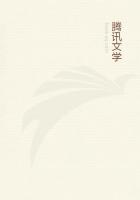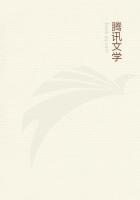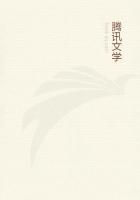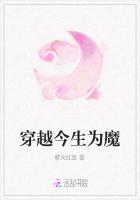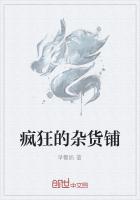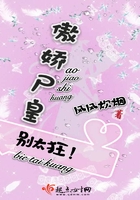Yet this prestige was not merely the outcome of public changes; it was an intensely personal matter, too. Victoria was the Queen of England, the Empress of India, the quintessential pivot round which the whole magnificent machine was revolving--but how much more besides! For one thing, she was of a great age--an almost indispensable qualification for popularity in England. She had given proof of one of the most admired characteristics of the race--persistent vitality. She had reigned for sixty years, and she was not out. And then, she was a character. The outlines of her nature were firmly drawn, and, even through the mists which envelop royalty, clearly visible. In the popular imagination her familiar figure filled, with satisfying ease, a distinct and memorable place. It was, besides, the kind of figure which naturally called forth the admiring sympathy of the great majority of the nation. Goodness they prized above every other human quality; and Victoria, who had said that she would be good at the age of twelve, had kept her word. Duty, conscience, morality--yes! in the light of those high beacons the Queen had always lived.
She had passed her days in work and not in pleasure--in public responsibilities and family cares. The standard of solid virtue which had been set up so long ago amid the domestic happiness of Osborne had never been lowered for an instant. For more than half a century no divorced lady had approached the precincts of the Court. Victoria, indeed, in her enthusiasm for wifely fidelity, had laid down a still stricter ordinance: she frowned severely upon any widow who married again. Considering that she herself was the offspring of a widow's second marriage, this prohibition might be regarded as an eccentricity; but, no doubt, it was an eccentricity on the right side.
The middle classes, firm in the triple brass of their respectability, rejoiced with a special joy over the most respectable of Queens. They almost claimed her, indeed, as one of themselves; but this would have been an exaggeration.
For, though many of her characteristics were most often found among the middle classes, in other respects--in her manners, for instance--Victoria was decidedly aristocratic. And, in one important particular, she was neither aristocratic nor middle-class: her attitude toward herself was simply regal.
Such qualities were obvious and important; but, in the impact of a personality, it is something deeper, something fundamental and common to all its qualities, that really tells. In Victoria, it is easy to discern the nature of this underlying element: it was a peculiar sincerity. Her truthfulness, her single-mindedness, the vividness of her emotions and her unrestrained expression of them, were the varied forms which this central characteristic assumed. It was her sincerity which gave her at once her impressiveness, her charm, and her absurdity. She moved through life with the imposing certitude of one to whom concealment was impossible--either towards her surroundings or towards herself. There she was, all of her--the Queen of England, complete and obvious; the world might take her or leave her; she had nothing more to show, or to explain, or to modify; and, with her peerless carriage, she swept along her path. And not only was concealment out of the question; reticence, reserve, even dignity itself, as it sometimes seemed, might be very well dispensed with. As Lady Lyttelton said: "There is a transparency in her truth that is very striking--not a shade of exaggeration in describing feelings or facts; like very few other people I ever knew. Many may be as true, but I think it goes often along with some reserve. She talks all out; just as it is, no more and no less." She talked all out; and she wrote all out, too. Her letters, in the surprising jet of their expression, remind one of a turned-on tap. What is within pours forth in an immediate, spontaneous rush. Her utterly unliterary style has at least the merit of being a vehicle exactly suited to her thoughts and feelings; and even the platitude of her phraseology carries with it a curiously personal flavour. Undoubtedly it was through her writings that she touched the heart of the public. Not only in her "Highland Journals" where the mild chronicle of her private proceedings was laid bare without a trace either of affectation or of embarrassment, but also in those remarkable messages to the nation which, from time to time, she published in the newspapers, her people found her very close to them indeed.
They felt instinctively Victoria's irresistible sincerity, and they responded.
And in truth it was an endearing trait.
The personality and the position, too--the wonderful combination of them--that, perhaps, was what was finally fascinating in the case. The little old lady, with her white hair and her plain mourning clothes, in her wheeled chair or her donkey-carriage--one saw her so; and then--close behind--with their immediate suggestion of singularity, of mystery, and of power--the Indian servants. That was the familiar vision, and it was admirable; but, at chosen moments, it was right that the widow of Windsor should step forth apparent Queen. The last and the most glorious of such occasions was the Jubilee of 1897. Then, as the splendid procession passed along, escorting Victoria through the thronged re-echoing streets of London on her progress of thanksgiving to St. Paul's Cathedral, the greatness of her realm and the adoration of her subjects blazed out together. The tears welled to her eyes, and, while the multitude roared round her, "How kind they are to me! How kind they are!" she repeated over and over again. That night her message flew over the Empire: "From my heart I thank my beloved people. May God bless them!" The long journey was nearly done. But the traveller, who had come so far, and through such strange experiences, moved on with the old unfaltering step. The girl, the wife, the aged woman, were the same: vitality, conscientiousness, pride, and simplicity were hers to the latest hour.

